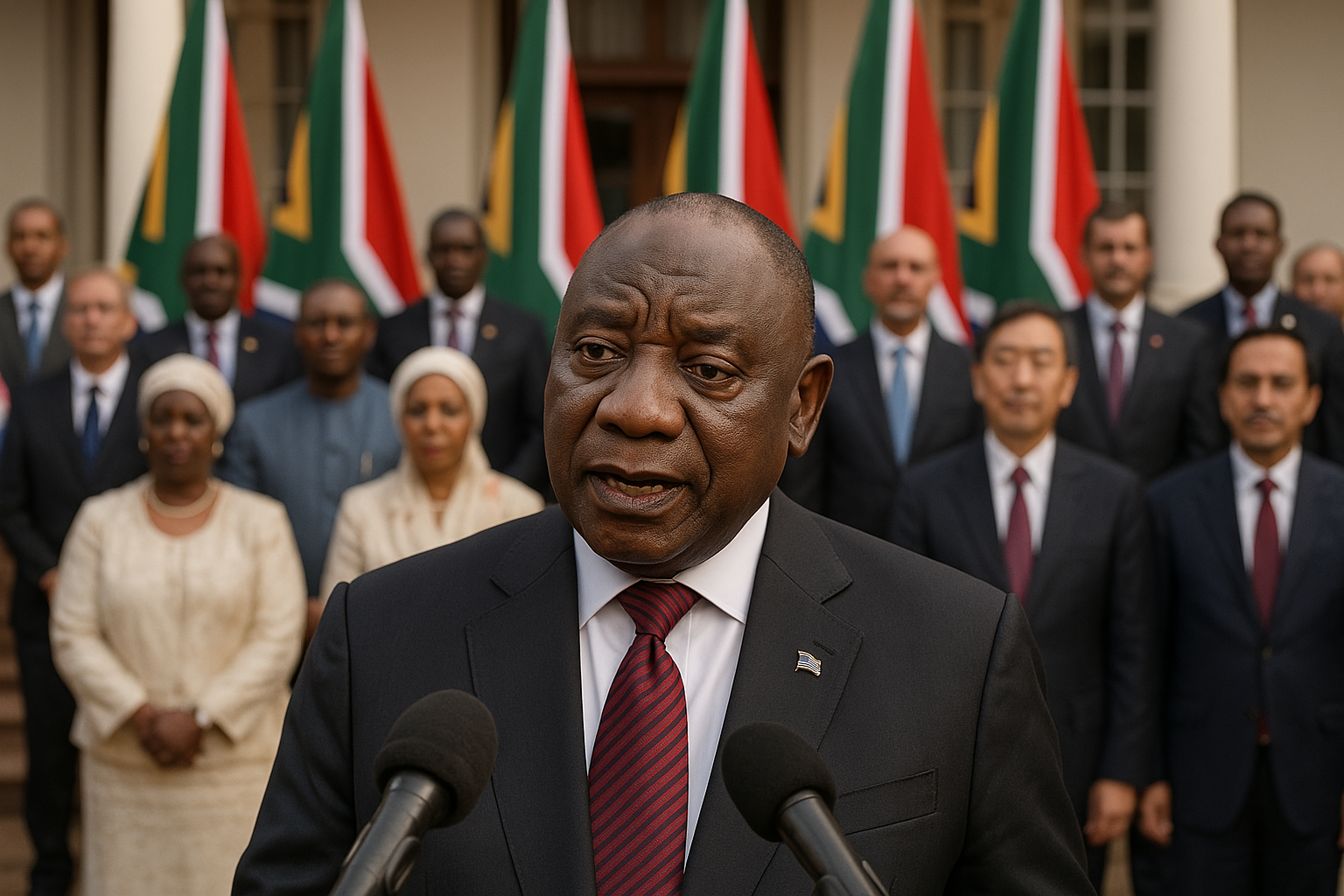SA’s Human Rights Diplomacy Strengthens Global Ties and Soft Power
The President described this influence as a form of “soft power,” grounded not in dominance or coercion, but in example, humility, and respect.

- Country:
- South Africa
South Africa’s steadfast commitment to human rights remains a cornerstone of its foreign policy, shaping the way the country engages with the international community and affirming its identity on the global stage. This was reaffirmed by President Cyril Ramaphosa during a media briefing held after a ceremonial presentation of Letters of Credence by newly appointed Ambassadors and High Commissioners at the Sefako Makgatho Presidential Guesthouse in Pretoria on Thursday.
Addressing members of the press, President Ramaphosa emphasized that the principles of human dignity, respect for other nations, and international solidarity are not only embedded in South Africa’s constitutional order but also serve as defining elements of its foreign policy.
“Our commitment to human rights defines our international foreign policy, and this is who we are as South Africans. We promote human rights solidarity as well as respect for other nations, and that's how we've decided to define our foreign policy,” said President Ramaphosa.
He highlighted that South Africa seeks to build bridges through diplomatic engagement, upholding values that resonate with its own struggle for freedom, justice, and reconciliation. These values, he said, have found recognition and resonance with nations across the globe.
Human Rights as Soft Power
Ramaphosa noted that South Africa’s soft power—rooted in its historical journey, constitution, and global advocacy for human rights—is influencing how other nations shape their own governance and reconciliation frameworks.
“Some of them [foreign diplomats] are relating how our Truth and Reconciliation Commission process has influenced what they are doing, and how our constitutional principles also influence what they do,” he said.
The President described this influence as a form of “soft power,” grounded not in dominance or coercion, but in example, humility, and respect. He attributed this approach to the spirit of Ubuntu—a deep cultural value that emphasizes human interconnectedness, compassion, and mutual respect.
“We do so with humility, without being arrogant, and without being disrespectful to others. And it is what Ubuntu is all about, that is what defines us, and we are very proud of continuing to adhere to those values and those constitutional principles,” Ramaphosa said.
Diplomatic Relations and Multilateral Engagement
During the ceremony, President Ramaphosa received credentials from the Heads of Mission Designate from 14 countries: Gabon, the Democratic Republic of Congo, Russia, Bangladesh, Canada, Egypt, Ethiopia, Türkiye, Japan, Mongolia, Portugal, Panama, Nepal, and Senegal.
These ambassadors and high commissioners will represent their respective countries in South Africa, promoting bilateral relations, economic cooperation, cultural exchange, and political collaboration.
The President stressed that the act of presenting credentials goes beyond ceremonial tradition—it signifies a shared intention to build meaningful relationships based on mutual respect and common values.
“The recognition by other nations as they come to present their credentials of what we stand for is a real recognition for us,” he said, adding that it often reminds South Africans of the broader global appreciation for their efforts.
Open for Business and Global Partnership
President Ramaphosa further underscored that South Africa remains an attractive destination for diplomacy, investment, and multilateral cooperation—despite the domestic challenges it may face.
“They [ambassadors] want to represent the interests of their own countries here, but at the same time promoting our own interests,” he noted.
He encouraged the media and public to spread the message that South Africa, while navigating a range of socioeconomic hurdles, continues to earn the respect and trust of the international community.
“As much as we are going through many challenges, we are seen and recognised by others for what we do—particularly what we seek to do to advance the interests of our own people,” the President concluded.
A Vision for Shared Prosperity
South Africa’s foreign policy, guided by human rights and global solidarity, seeks to foster prosperity not only within its borders but across the global South and beyond. Through multilateralism, principled diplomacy, and adherence to the rule of law, the country aims to contribute constructively to a more just and equitable world order.
The letters of credence ceremony serves as a timely reminder of South Africa’s continued relevance and influence in international affairs—and its ongoing journey to embody the spirit of Ubuntu in all its global engagements.
- READ MORE ON:
- Cyril Ramaphosa
- Sefako Makgatho Presidential Guesthouse










